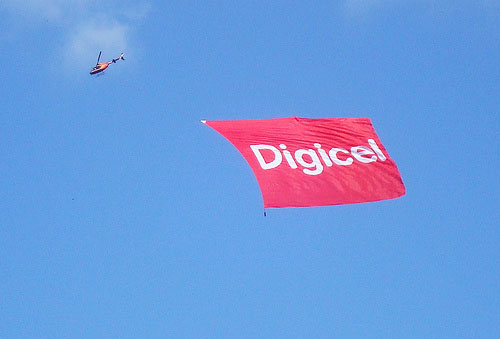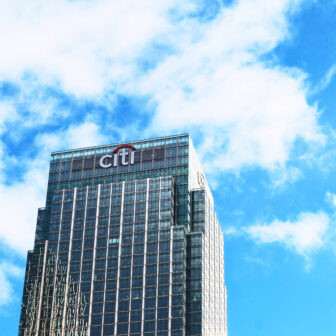A Mobile Fortune: The Life and Times of Denis O’Brien
By Siobhán Creaton | Aurum | $45
Boomerang: The Meltdown Tour
By Michael Lewis | Allen Lane | $39.95
WHEN governments around the world decided to open their broadcasting and telecommunications markets to competition, they needed people who could make something of the moment. Some countries got the neighbours, nearby monopolies facing competition in their own markets. Others got distant giants used to serving cities bigger than many of the newly liberalising national markets. A lot got Denis O’Brien.
A child of a Protestant mother and a Catholic father raised in a well-to-do area of south Dublin, O’Brien became part–Rupert Murdoch, part–James Joyce, an entrepreneur-in-exile bullocking his way into once-closed communications markets.
The Irishman won an FM radio licence in Dublin in 1989, then picked up Ireland’s second mobile phone licence in 1995. After selling his telecommunications company at the height of the telecoms and internet boom in early 2000, he got a licence to start a mobile phone service in Jamaica. The new company, Digicel, rapidly expanded across the Caribbean, Central and South America, and the South Pacific, and now operates in thirty-two countries. O’Brien also acquired and was awarded more radio licences in Ireland and Central and Eastern Europe, creating a sizeable international radio empire on the foundation of Dublin’s 98FM.
Along the way, he got a lot of money, some enemies and a big problem. A tribunal established in 1997 to investigate irregular payments to politicians concluded in 2011 that payments made by and on behalf of O’Brien to Michael Lowry, the minister who oversaw the allocation of Ireland’s second 2G mobile licence, “were demonstrably referable to the acts and conduct of Mr Lowry… that inured to the benefit of Mr O’Brien’s winning consortium, Esat Digifone.”
The Director of Public Prosecutions is taking a long look at the findings of the tribunal. (It won’t comment on the status of individual cases.) It was not a court, though it was run by a High Court judge, Michael Moriarty. No charges have been laid against O’Brien or Lowry. O’Brien still runs his companies. He has kept the money and the enemies and set up a website, moriartytribunal.com, to present the “true picture” rather than the “self-serving supposition, hearsay, rumour and biased opinion” that were “hallmarks of the Moriarty Tribunal.” His company won the mobile licence, says O’Brien, “on merit alone.”
BIOGRAPHERS love durable genesis figures – inventors, founders, single-minded visionaries who take the first steps that others follow, then keep stealing every scene. O’Brien is perfect, a big personality who takes big risks, wears some failures, but wins large enough, often enough, to keep the story rolling and building.
O’Brien’s biographer is former Irish Times finance journalist Siobhán Creaton. This book, A Mobile Fortune, follows her account of Ryanair, whose founder Tony Ryan employed O’Brien as a personal assistant when he was running the aircraft-leasing company Guinness Peat Aviation. Ryanair and Digicel are two of Ireland’s most visible global corporate successes. Both moved quickly into industries that had been highly regulated until the 1980s, establishing low-cost operations and launching aggressive, unconventional marketing campaigns.
Before Dublin’s 98FM, O’Brien started a TV shopping channel carried on the British satellite provider, BSkyB. The money ran out before Sky had enough viewers to make the venture profitable. He failed again when he bid for a commercial radio licence to serve the whole of Ireland. The Dublin franchise was a consolation prize. He made a success of it, acquired more stations in Europe and started looking for other opportunities.
Esat Telecom, the telecommunications company he’d established in 1990, was one of the first to sell international calls in competition with Telecom Éireann. The incumbent responded with price discounting to keep the best customers and technical obstruction to slow rivals wanting to interconnect to its network, a strategy right out of the playbook of former monopoly telcos around the world. Esat Telecom retaliated, taking forever to pay its interconnection bills and firing in complaints to the regulator every time one arrived; a customer in arrears couldn’t be disconnected while a complaint was unresolved.
Mobile telecommunications provided an opportunity to blend the customer focus of the young telecoms reseller with the showbiz of FM radio. O’Brien’s Esat Telecom formed a company called Esat Digifone with the Norwegian telco Telenor. Its bid for the mobile licence was delivered through the streets of Dublin in a Viking ship, crewed by twenty-four warriors, carrying the documents in glass boxes. Irish violinist and vocalist Fionnuala Sherry, fresh from victory in the Eurovision Song Contest with a Norwegian band, played the winning song in the street outside the government offices for “stunned” officials.
Within a few months, Digifone had 40 per cent of Ireland’s mobile market. The success stretched its network capacity so much it became known for a time as “Dodgyfone.” While commercially successful, the Irish and the Vikings didn’t get on. Telenor launched a hostile takeover that O’Brien quickly realised he was unlikely to win. Instead, he redirected his energies to finding a buyer for his whole telecommunications business, Esat Telecom, including its stake in Esat Digifone.
He found BT, the formerly state-owned British telco, in early 2000, around the time AOL and Time Warner were getting together. Digifone had paid €19 million for its mobile licence. BT paid nearly €2.5 billion for Esat Telecom about four years after the mobile company started trading. It then mopped up the minority shareholders in Digifone and snatched control of the mobile company from Telenor. O’Brien had lost his telecoms company but his personal share of the sale price was over €300 million.
Shortly before his mobile fortune vested, O’Brien did what so many Irish have done through the ages: he left. Unwilling to hand over a large slice in capital gains tax to the Irish state, he went to live in Portugal and later Malta. He kept the Irish radio stations and played a big role as chairman of the organising committee for the 2003 Summer Special Olympics, held in Dublin, for competitors with intellectual disabilities. This meant travelling back and forth to Ireland regularly, but not so often as to constitute residency in the eyes of the Office of the Revenue Commissioners. Friends warned him it would be an unpopular way to deal with a fortune earned mainly from a briefly held franchise awarded by the Irish government.
DENIS O’BRIEN turns up a couple of times in Michael Lewis’s Boomerang: The Meltdown Tour, a book-length collection of articles first published in Vanity Fair about the causes and impacts of the global financial crisis in Iceland, Greece, Ireland, Germany and California.
O’Brien was deputy governor of the Bank of Ireland for a year from September 2005, three years before the collapse of US investment bank Lehman Brothers. He tells Lewis that he remembers the CEO of the Anglo Irish Bank “coming in and saying ‘We’re going to grow at 30 per cent a year.’ I said how the f—k are you going to do that? Banking is a five-to-seven-percent-a-year growth business at best.” Anglo Irish later admitted losses of €34 billion, nearly half its total loans. This was about a third of the property-related losses sustained by all Irish banks. Anglo Irish’s chairman resigned after it was revealed he had €84 million in loans from his own bank. In January 2009, the bank, with all its losses, was nationalised.
Unlike in Iceland, where men in banks “used foreign money to conquer foreign places,” men in Ireland “used foreign money to conquer Ireland,” writes Lewis. “Left alone in a dark room with a pile of money, the Irish decided what they really wanted to do was buy Ireland. From each other.” Denis O’Brien’s second appearance comes as part of this trade. While serving as a Bank of Ireland director, O’Brien paid €35 million for a house on Dublin’s exclusive Shrewsbury Road. It was reported to be the second-highest price ever paid for a house in Dublin, on a street that, for a time, was one of the most expensive in the world. Since then, prices are reported to have fallen more than 50 per cent.
The Irish government’s “odd but suicidal” decision in September 2008 to underwrite the losses of its banks was, according to Lewis, “a single decision that sank Ireland.” The “Celtic Tiger,” a nation “that had finally clawed its way out of centuries of indentured servitude [was thrown] back into indentured servitude.”
Trying to explain the government’s decision, Lewis concludes it was about family. He thinks the “way entire countries jumped when the money was made freely available to them obviously told you a lot about them: their desires, their constraints, their secret sense of themselves. How they reacted when the money was taken away was equally revealing… In Ireland the money was borrowed by a few banks, and yet the people seem not only willing to repay it but to do so without so much as a small moan.”
An American, Lewis is struck by two things in Ireland: “how small it is [4.6 million people in 2011, about the same size as Sydney] and how tight-lipped… The famous Irish gift of the gab is a cover for all the things they aren’t telling you.”
O’BRIEN loves a stoush. In many Caribbean countries, his company Digicel confronted the same competitor: Cable and Wireless. In the late twentieth century, this London-based descendant of the Victorian-era Eastern Telegraph Company still had mini-monopolies in former British colonies all over the old, global empire.
Digicel fought a savage battle over the Caribbean’s sponsorship jewel, the West Indies cricket team. Cable and Wireless claimed that the West Indies Cricket Board breached its longstanding sponsorship arrangement by negotiating behind its back with Digicel. After Digicel won a five-year deal with the board in 2004, Cable and Wireless signed individual endorsement deals with seven players including captain Brian Lara. They proved reluctant to support Digicel’s team sponsorship; the board dropped them from the side.
A Cable and Wireless executive told Creaton that at one attempted mediation meeting chaired by the prime minister of Grenada, O’Brien “was accusing Cable and Wireless of being a colonial power, of misusing the people of the Caribbean for a hundred years.” The executive thought it “very unseemly.”
Back in Ireland, O’Brien took on a local legend, Sir Anthony (once Tony) O’Reilly. A 1950s British and Irish Lions rugby great knighted in 2001 by Britain’s queen, O’Reilly had turned Kerrygold Butter into a major Irish export product, become chief executive and later chairman of the US food giant H.J. Heinz (the first non-Heinz-family chairman), and become chairman and a major shareholder in the famous glass, porcelain and china makers Waterford Wedgwood (which went into receivership in 2009 and was bought by a US private equity firm). He built the Irish-based Independent News and Media, or IN&M, into a large international media enterprise with interests in Australia, South Africa, New Zealand and Britain.
O’Brien hated the coverage he got in O’Reilly’s newspapers. In 2006, he started accumulating a stake in IN&M. He is now the largest shareholder. It gave him the power to push the septuagenarian O’Reilly into retirement (son Gavin O’Reilly took over as CEO) and to appoint his own representatives to the board, although the stake in a declining newspaper business is now worth only a fraction of what he paid for it.
When O’Brien confronted O’Reilly in early 2009 about the direction of the company, Creaton writes, he refused to meet at O’Reilly’s County Kildare mansion, Castlemartin, but agreed to come to the IN&M boss’s Georgian townhouse in Dublin’s Fitzwilliam Square. They met on the morning of the England–Ireland rugby match at Croke Park, the scene of Bloody Sunday in 1920 and the headquarters of the Gaelic Athletic Association, where the hurling and Gaelic football championship finals are played. Rugby and other English “garrison” sports like soccer and cricket are not normally played at Croke Park; an historic exception had been made while the usual rugby venue, Lansdowne Road, was being redeveloped. O’Brien and O’Reilly didn’t make much progress but the Irish won the match by a point.
DENIS O’Brien could be squeezed into one of those national stereotypes that Michael Lewis’s Boomerang relishes – insular Icelanders surviving winters of eternal darkness, lazy and corrupt Greeks, obsessive Germans, crazy Californians redeem-ed by a single firefighter who thinks he can turn it all around. O’Brien could be the hard-drinking, hard-fighting Dubliner, except that’s not Lewis’s image of the Irish and it’s not nearly adequate to describe O’Brien’s achievements.
“The Irish insistence on their Irishness – their conceit that they are more devoted to their homeland than the typical citizen of the world – has an element of bluster about it, from top to bottom,” Lewis writes. “At the top are the many Irish people who emit noisy patriotic sounds but arrange officially to live elsewhere so they don’t have to pay tax in Ireland; at the bottom, the waves of immigration that define Irish history. The Irish people and their country are like lovers whose passion is heightened by their suspicion that they will probably wind up leaving each other. Their loud patriotism is a cargo ship for their doubt.”
Denis O’Brien’s Digicel is one of the companies that enabled many people in small, poor countries to make telephone calls for the first time. That changed lives, businesses, families. Mobile networks were faster and cheaper to build than fixed-line networks, and the companies awarded new licences to build and operate them were often the first competitors in national telecommunications markets. Territories like Jamaica, Haiti and Papua New Guinea were very, very tough places to survive in, let alone start businesses.
It took a special kind of enterprise to convince the governments of these former colonial states to open their markets, to win the new franchises, and then to survive and prosper against well-connected former monopolists.
Even someone sceptical about national stereotypes might be tempted to think that the Irishman O’Brien was especially well-qualified for this kind of struggle. Communications ministers around the world could have been attracted to him not just because of the charm, the craic, the gift-of-the-gab, but also because they felt he had what it would take to confront deeply entrenched power.
What Denis O’Brien did to confront one piece of power – what it really took to win that mobile franchise back at the start, around the time Ireland was severing its past and becoming the Celtic Tiger – is now up to the office of the Director of Public Prosecutions in Dublin. It needs to decide if O’Brien has a case to answer and if anyone inside the now fallen tiger wants to find out and tell. •




